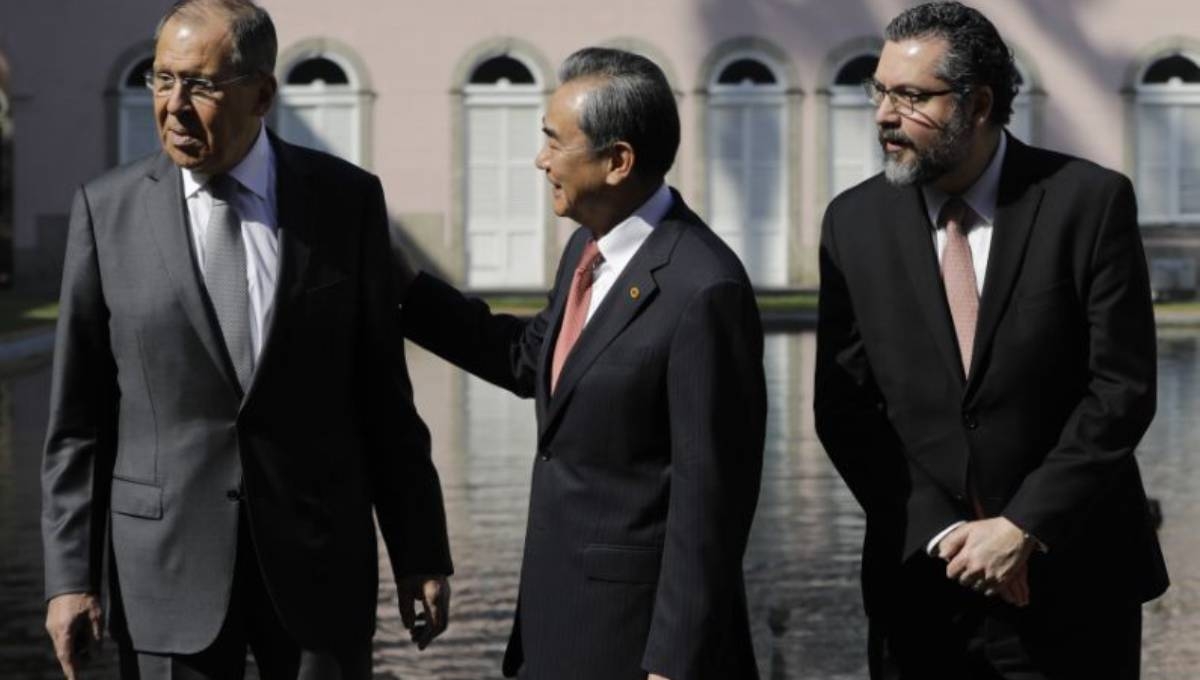Brazil challenges Russia, China on Venezuela crisis

Brazil's foreign minister plunged immediately into the divisive question of Venezuela on Friday, urging his counterparts from BRICS nations Russia, China, India and South Africa to hear Venezuelans' "cry for freedom."
"Brazil has heard that cry. I appeal to you all to listen to it too," Foreign Minister Ernesto Araujo said at the opening session, reiterating his conservative government's support for Venezuelan opposition leader Juan Guaidó over President Nicolás Maduro.
Few issues divide the informal trade group as deeply as how to deal with Venezuela, whose socialist government is strongly backed by Russia and China. But a mass migration caused by the country's economic and political crisis has led to an influx of tens of thousands in Brazil.
Araujo denounced "a regime sustained by force" that he said has led to extreme poverty, hunger and "the exodus of 4 million Venezuelans."
He agreed with Russia, however, on one key point: opposition to foreign intervention.
"We agree that the solution must be constructed by Venezuelans," Araujo told reporters later.
The focus on Venezuela led to a discordant start for the meeting of emerging economies — in contrast to past gatherings held under former President Luiz Inácio Lula da Silva which drew other leftist governments together against Washington.
President Jair Bolsonaro, who took office in January, has compared himself to U.S. President Donald Trump, complained about Russia's support of Maduro and suggested allowing a U.S. military presence in Brazil. Before entering the Cabinet, Araujo had been deeply skeptical of China, suggesting on his blog that its extensive investments in Brazil were a threat to national sovereignty. He also wrote that climate change was a plot piloted by "cultural Marxism" to promote China's growth.
Russia's Foreign Minister Sergey Lavrov responded to Araujo's plea by saying the approach to Venezuela should be based on "international law and give support to Venezuelans without external interference, and always with (respect to) the Constitution."
Oliver Stuenkel, an associate professor of international relations at the Getulio Vargas Foundation, said that he didn't expect much to come of either entrenched position.
"Despite Brazil caring a lot about this topic, I think it is very unlikely to see anything substantive vis-à-vis Venezuela coming out of this summit," he said.
The meeting is supposed to lay the groundwork for a November summit of the five nations' leaders that will be focused on forging agreements on trade and technology, and fighting terrorism and international crime.
Separately on Friday, Araujo confirmed that Bolsonaro's administration has officially nominated Eduardo Bolsonaro, the president's son, to be Brazil's ambassador to the United States. The proposal would have to be cleared by the U.S. government and approved by Brazil's Senate.
"I am certain that it will be granted by the American government and that Eduardo Bolsonaro will be a great ambassador," Araujo said.
